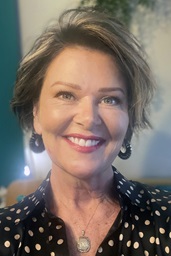For many people, looking for a new job is at the top of their to-do list. Jennifer Pickerell, director of career services at United Methodist-related McKendree University, offers the following steps to ensure success.
Network
According to the U.S. Bureau of Labor Statistics, up to 70 percent of all jobs are found through networking. You can learn about positions that are not posted on job sites, or you might find that a position is created for you because of your unique experiences and skills.
So how do you build your network? Attend professional networking events, join a group in your field of interest, volunteer and get involved at church. Look for events on your local Chamber of Commerce website or through groups on LinkedIn. Remember, networking is not using people to get a job. This should be a mutually beneficial relationship that’s developed over time. That’s why it’s important to start early. Be warm, engaging and positive. Consider creating a business card to distribute when appropriate. Don’t forget to take notes after you meet with someone so you can follow up with a thank you.
Go online
Social media can also be a useful tool in job searches. Take advantage of free online resources like LinkedIn. Create online networks and join groups in your area of interest. Many employers post positions on LinkedIn, so be sure to check the jobs area and look through your personal contacts to see who is hiring.
Don’t forget about Facebook and Twitter. Make sure you represent yourself well through posts and photos. Employers often check pages before making hiring decisions. Post and tweet to let friends and family know you’re looking for opportunities. They might be aware of something relevant.
Check with your school’s career services office to find out if it has an online database of jobs. For example, McKendree University has the College Central Network. Employers can post positions and search the resume database once the office approves the post.
Also, many employers post job openings on their own websites, so it is important to create a targeted list of organizations or companies to follow.
Be creative
Before starting the search, create a cover letter and resume. These should be developed with different companies and industries in mind. Never send out a general cover letter; it suggests you didn’t take the time to go the extra step. Research a potential employer if you’re applying for a specific position so you can highlight that knowledge in your letter.
When creating your resume, highlight your most relevant skills and experience. Request permission to list people as references. These can include previous or current supervisors, faculty members, volunteer service coordinators, coaches or another professional who can speak about your skills, work ethic and personality. Provide them with a copy of your resume. Check with your school’s career services office for more information about creating cover letters and resumes.
Practice makes perfect
It’s important to feel confident before you walk into an interview, so practice is essential. Most career services offices conduct mock interviews and can offer suggestions about what to wear and what questions you should ask your interviewer. You can also practice with family and friends, but make sure the person who conducts the mock interview can offer you solid feedback.
Be aware that many interviewers ask situational questions, meaning the questions begin with “Tell me about a time when…” so they can see how your past behavior might affect your future. Remember the STAR technique:
Situation – Explain the situation.
Task – Tell about the task at hand.
Action – State what you did to accomplish the task.
Result – Tell about your results.
Follow up
Send a thank-you letter after the interview, and follow up with interviewers afterward as appropriate. Do the same for individuals in your networks so that you can continue to develop the relationship and thank them when applicable. Keep your references updated on what is going on with your job search and give them a heads up if they might be receiving a call in the near future from a potential employer.
If enhancing your education and building leadership skills is also a part of your career goals, please visit www.gbhem.org/education for a complete list of the 119 outstanding United Methodist-related schools, colleges and universities in the United States.
Media contact: Natalie Bannon, at 615-742-5413.
Like what you're reading? Support the ministry of UM News! Your support ensures the latest denominational news, dynamic stories and informative articles will continue to connect our global community. Make a tax-deductible donation at ResourceUMC.org/GiveUMCom.




